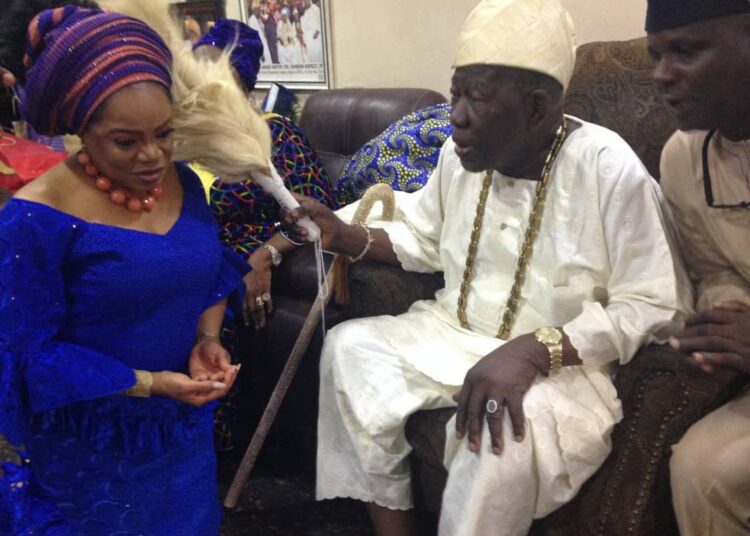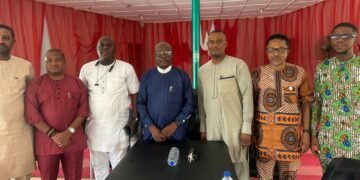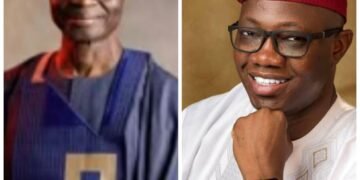 The founder of AfriWomen for Entrepreneurship Initiative, Mrs Adebukola Oso, has revealed why its non governmental organization, NGO, is after women and girl child.
The founder of AfriWomen for Entrepreneurship Initiative, Mrs Adebukola Oso, has revealed why its non governmental organization, NGO, is after women and girl child.
Oso, who spoke with newsmen on Monday at her Bodija office, in Ibadan, the Oyo state capital office said empowering a woman and girl child is not only beneficial to the individual but the world at large saying “empower one woman, you have empowered the family, household, community and the nation, because she’s going to raise the future leaders and citizens”.

She said developing a robust human capacity is through women and girl child adding that “a healthy human capacity is a strong nation. You cannot therefore empower women and exclude girl child.”
Her words: “Afriwomen primarily focuses on poverty alleviation, like every NGO, there is always a target beneficiary. For us, it’s about recognising and leveraging on the potentials of women and the girl child as major drivers and beneficiaries of poverty alleviation programmes. We focus on women, we all know the importance of women in the society, when you empower one woman, you have empowered the family, household, community, and nation because she’s going to raise the future leaders and citizens. Developing of human capacity is through the women, girl child and human capacity is very important to nation building.
“At the moment, we focus on girl child between the 15 and above. We chose that because we can work with our girl children on vocational training, those of them that have missed school because of teenage pregnancy, we offer adult literacy classes, we are a registered center for adult literacy and entrepreneurship programmes. Our centre is being monitored and regulated by the Oyo State Agency for adult and Non-Formal Education (Oyo AANFE).
“So for the girl child, through vocational trainings we give them opportunities of a second chance to get educated, acquire entrepreneurial skills, personal development and leadership skills. For some of the girl child, our centre and signature programmes are simply an opportunity to stay longer in school and learn a vocation at the same time. In today’s world where getting employed is so difficult, completing your education and also a vocation of your choice plus the benefit of being part of a networking community like AfriWomen is immeasurable to preventing poverty. At AfriWomen, our community include many women in public offices and private ventures who all offer one support or the other to each other. Such support include our cooperative where we offer revolving loans for businesses to start up, accelerate or sustain itself, we mentor ourselves, develop our abilities through workshops, seminars and programmes on enterprise, well being, leadership etc. Our cooperative is registered by Oyo state ministry of commerce.”
While speaking about the activities of Afriwomen so far, Oso said the NGO has visited the Olubadan of Ibadan, Oba Saliu Akanmu Adetunji Ajeogunguniso II and the Babaloja General of Oyo state, Alhaji YK Abass for support.
She also talked about centers the NGO has in different communities in the state and the upcoming event scheduled for 14th of this month at Molete.
Her words: “The literacy centers that we have at the moment. We started with a center here in January, we have been expanding, we are taking our centers to the community via annexes. We have opened one at Akingbola. What we have learnt was that in doing Poverty alleviation, we aren’t only doing adult literacy, vocational training, business development, we are also doing community development because at Akingbola, we had to fix the roof of the community hall that was given to us by the community. In our centres, AfriWomen provides facilities like chairs, tables, projectors, trained facilitators and we complement stationery supplies given to us by Oyo State AANFE, and so on. We are also in Oje. We have a total of 60 women there already as students and the class is growing. The Iyaloja of Oje is proudly one of our students and AfriWomen is honoured to have her and grateful for the support from Oyo State AANFE.
“We have also been to the Olubadan of Ibadan, Oba Soliu Akanmu Adetunji Ajeogunguniso II and Babaloja General of Oyo state, Alhaji YK Abass for support and access to market women.
“For the Molete launching of our new annexe which is scheduled for 14th of this month, we are creating an awareness and sensitisation to the significance of women and girl child as major drivers and beneficiaries of poverty alleviation programmes, policies and strategies. Our focus is on community leaders, policy makers, parents and youths, telling them about these opportunities and the benefits in collaborating with AfriWomen in alleviating poverty. Our sensitisation and awareness day is also keyed into forthcoming international day celebrations of literacy day, poverty eradication and girl child day. All of these days are due in September and October. They are major events for the world and AfriWomen. At AfriWomen, we don’t just want to celebrate these days, but we want to impact lives and communities.”
When asked what Afriwomen is doing differently from other NGOs, she said Afriwomen is different for so many reasons.
She said: “For instance, we don’t just analyse how we can impact the lives of individual beneficiaries, we also analyse the individual communities we work in. Each community is peculiar in terms of the inhabitants, make-ups and the dynamics which flows from it. AfriWomen therefore looks at each community and individual woman’s needs. We customise our programmes to our findings to enable us achieve a robust outcome for all our beneficiaries. So each of our annexes are unique to themselves.
She also said that AfriWomen’s beneficiaries are given choices on their outcomes.
Her words: “Individuals have varied goals for their outcomes- we recognise the power of choice and flexibility’s role in the processes involved in giving lasting impact. For instance, in vocational trainings, through AfriWomen taster seminars a d workshops, we expose our beneficiaries to various options of skills acquisition- I mean areas that women are not usually associated with, yet are lucrative and can accommodate the other motherly and wifely roles that women play e.g. photography. In business start-ups, we look at money transfer businesses and the whole cycle in agriculture too.
“Similarly, AfriWomen’s literacy classes also considers functional literacy like engaging our beneficiaries on how to use POS machine, operate computer and gadgets like smart phones for their businesses, wellbeing and social lives.
“We have marketing programmes tailor made for example on how to display their goods on online. Other programmes are for learning to speak and express themselves in different settings, others are simply for being able to write and sign at a function and so on.
“For AfriWomen to achieve these goals, takes a lot of God’s grace plus it involves a lot of passion and dedication from members and staff.”













